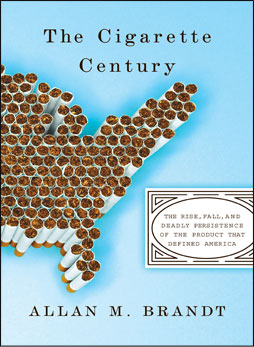
Last year I read The Cigarette Century by Allan M. Brandt, a history of the tobacco industry and a finalist for a Pulitzer Prize. One of the points that has stuck with me is how regulations that were intended to curtail the tobacco industry ended up benefiting them.
In what appeard to be a blow to the tobacco industry, the advertising of tobacco products on the radio and television was banned by the FCC in 1969. In 1967, a lawyer named John F. Banzhaf III successfully petitioned the FCC under the fairness doctrine to force radio and television to play anti-tobacco public service announcements if they played tobacco company ads. When the tobacco ads went off the air, so did the public service announcements. This was to the benefit of the tobacco industry who desperately wanted to suppress anti-tobacco information. Furthermore, the ban on advertising saved money being spent on expensive ad campaigns (the industry spent $230 million on television advertising in 1970 alone.)
In 1972, the FTC was finally able to require warning labels on tobacco products. Again, this perceived concession to the tobacco industry provided them with alternative benefits. Now the tobacco companies could argue that smokers were clearly warned of the health risks of smoking, and that they made an informed decision to start smoking despite the risks. Because these risks were accepted, the companies argued, they should not be liable for resulting health issues.
The tobacco companies negotiated regulations that, while appearing to be concessions, offered them benefits. That they were successful shows their savviness and the difficulty regulators have in reigning in companies that are determined to preserve their business model, and the profits that go along with it.